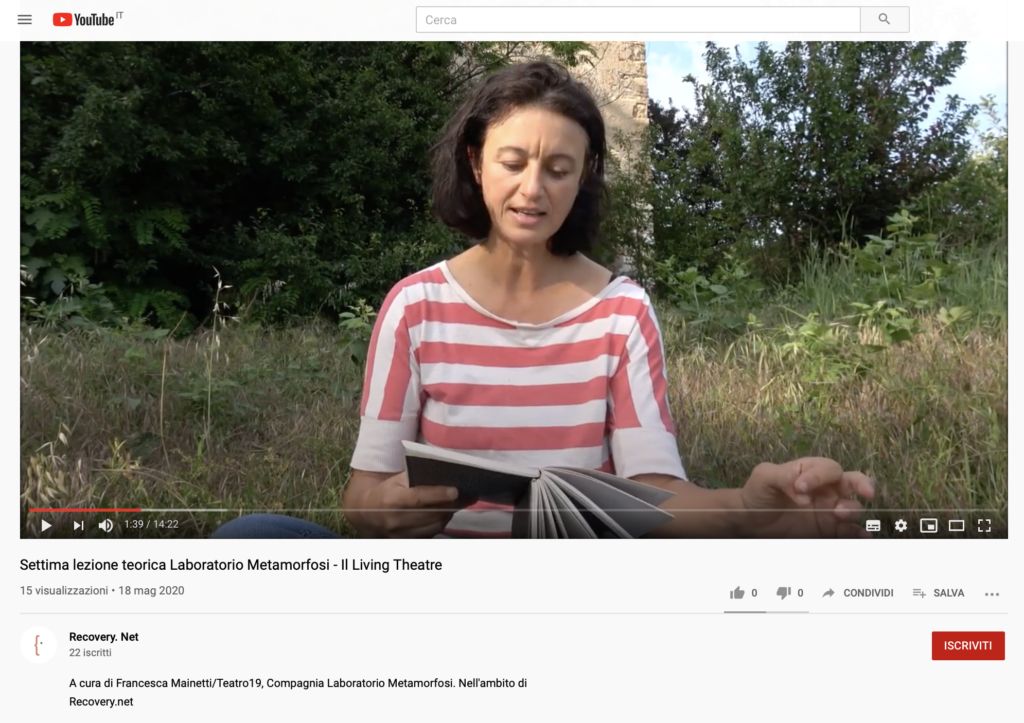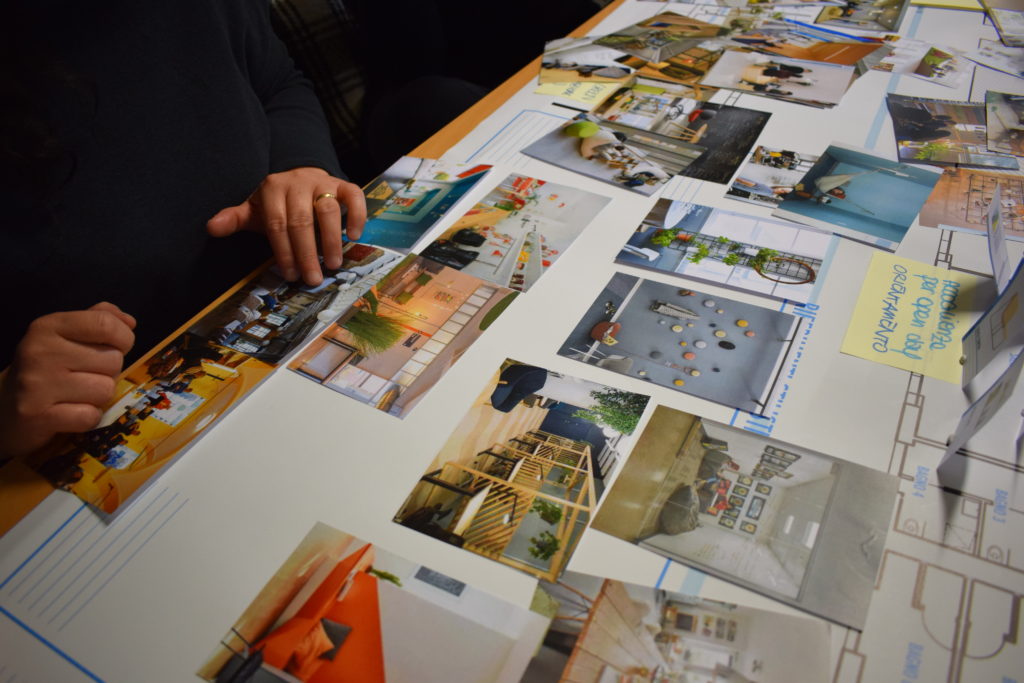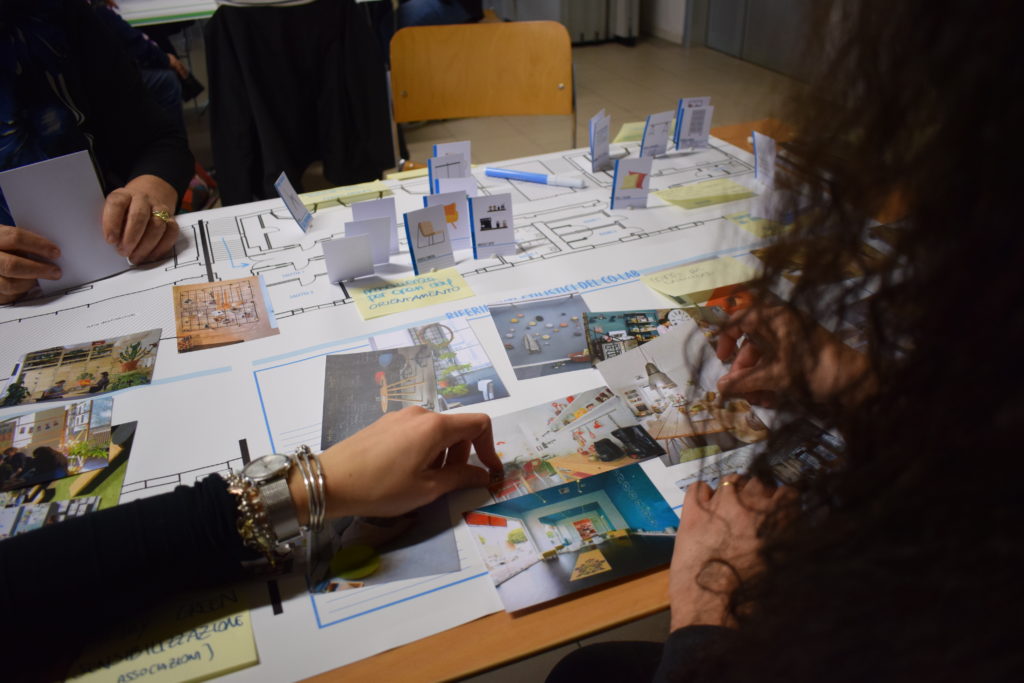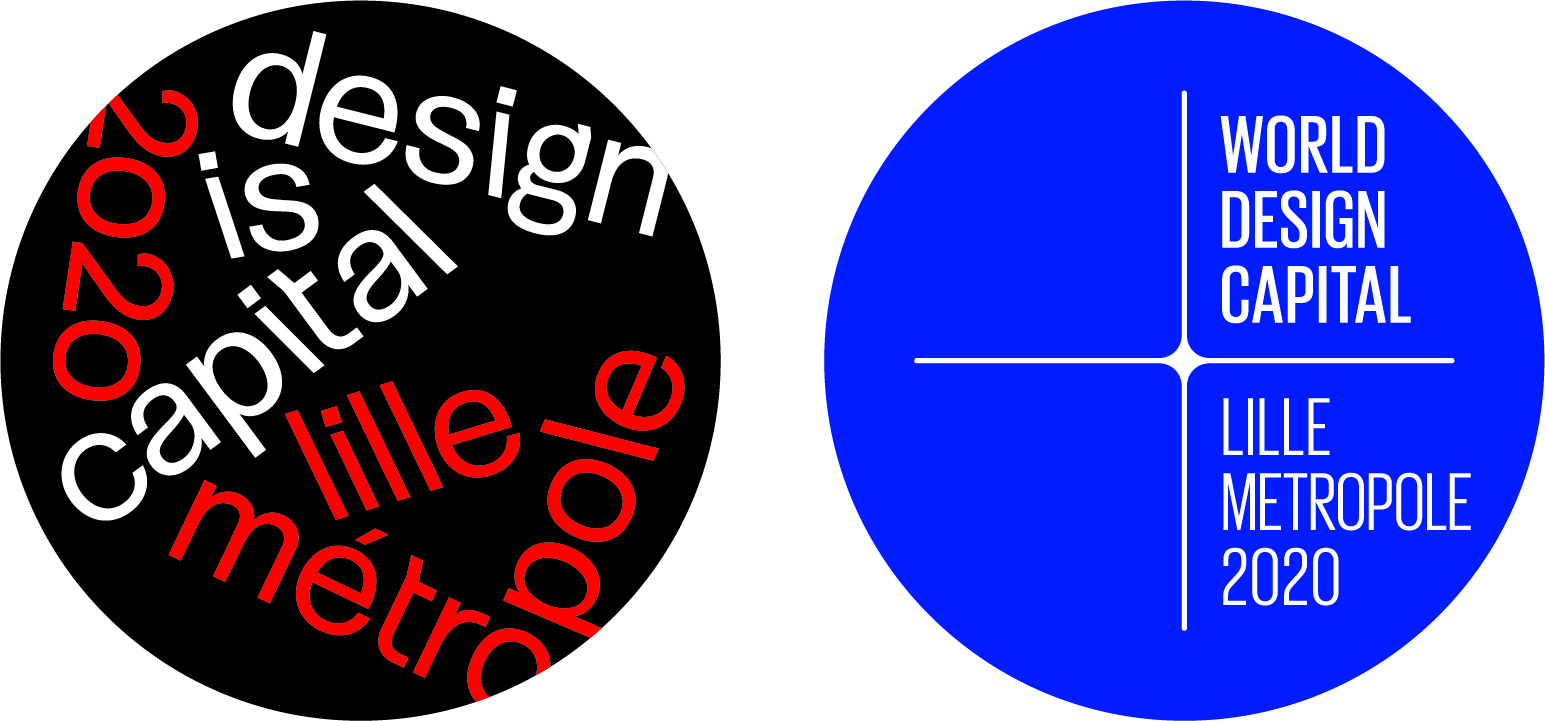POC Recovery.Net, Milan- IT
Hybrid places for a community-based psychiatry
Can digital platforms increase the potential of engagement with mental healthcare patients? Can we develop digital literacy and accelerate digitalisation, so as to go beyond the physical boundaries of institutional care? We need to rethink community-based psychiatry in order to enhance its networking and communication potential…

Toward an enhanced co-lab
Recovery.Net is an action-research project funded by Fondazione Cariplo that aims to establish a recovery-oriented and community-based psychiatry in the East of Lombardy, a region of Italy. A diverse team, with different roles and missions in mental health and public services, are working together to co-design pathways towards the transformation of current practices.
The work of Politecnico di Milano’s design research team focuses on the activation of 3 local laboratories (Recovery Co-Labs) outside institutional services, intended to be both physical and social spaces and with the threefold purpose of helping services innovate, supporting social inclusion and co-creating with the territory.
Since the early days of the pandemic, Recovery.Net started to re-imagine itself in order to guarantee a continuity in its actions. The board proposed to rethink and redirect the project towards an augmented and more connected version of the co-lab. This new co-lab concept, as a physical, distributed, itinerant and virtual space, explores new ways to connect with service users in current social distancing times (e.g. virtual theatre classrooms, recovery online courses, inspirational video pills on social media, online peer support, creative writing online competitions, dedicated phone lines, etc.).
Co-labs for a more connected community-based psychiatry
The crisis and initial confinement obliged the project board to activate new communication channels, opening up their service offer’s virtual doors to a potentially wider public. While they lost some patients in the process, the proposed initiatives started to attract other patients, coming also from outside the region of Lombardy. The post-pandemic phase brings the opportunity to integrate the potential and values of both physical and digital solutions, creating synergies and not fragments.
The project is now implementing strategies to purchase smart devices and develop the digital literacy of both users and professionals in order to consolidate the digitalisation process. The recovery co-labs’s co-design is now starting again with the new ambition of establishing hybrid places, to connect better users with local resources, while amplifying its reach to a more distributed and hard-to-reach community.


- Project holders : Polimi DESIS Lab – Politecnico di Milano – Département de design
- Designers : Dr. Daniela Sangiorgi, Marta Carrera
- Acteurs : Coordonné par le département de santé mentale de l’ASST Spedali Civili di Brescia ; en collaboration avec l’ASST Mantova, l’Università degli Studi di Milano-Bicocca, l’Università Cattolica del Sacro Cuore, La Rondine Società Cooperativa Sociale Onlus, Teatro 19, associazione O. N.L.U.S. Il Chiaro del Bosco, Società Cooperativa Sociale Sol.Co Mantova, associazione ALBA, Associazione Oltre La Siepe.
- Photo credits : Polimi DESIS Lab – Politecnico di Milano – Département de design
